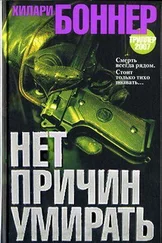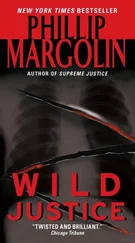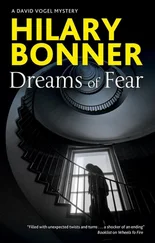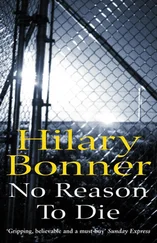Jo kept glancing towards the door. She had to admit to herself that she was waiting for Fielding’s arrival as much as for that of O’Donnell. Although the detective was officially not actively involved in the new case she knew he wouldn’t miss being there. He turned up just seconds before O’Donnell.
She was expecting to see him. And yet her first sight of him in twenty years made her catch her breath. Some things you never forget, that’s the trouble, she thought. He looked older, of course, his hair greyer and thinning, but he had retained his slim build. He was wearing a very ordinary grey suit, well worn and not particularly well fitting. That was different. He would never have been seen dead in a suit like that when she had first known him. By and large, though, he didn’t seem to have aged badly. He hurried in, checking his watch, and walked right past her, heading for a couple of empty chairs towards the front. That was familiar. Fielding had always been in a hurry, had always arrived everywhere at the last possible moment.
Then he turned to look at her — directly at her, straight away. Maybe he had felt her gaze on him. Certainly he seemed to focus on her immediately and when their eyes met she saw, and it made her feel so sad, just how much disappointment and weariness there was in him. His physical frame might have worn well, but the man himself had changed a great deal. There was somehow no doubt about that. He smiled and raised a hand slightly in greeting as he sat down.
She was still studying the back of his head when a suppressed murmuring in the court indicated that O’Donnell was being ushered in. Lillian Phillips gave a low moaning sound. Out of the corner of her eye Jo noticed Bill Phillips take his wife’s hand in his and squeeze.
Jo had not seen O’Donnell for twenty years either. He too looked older and greyer. Fatter as well. She was struck by the way he had developed facial similarities to his now elderly father. Sam the Man, loyal as ever, keeping up appearances as ever, walked, leaning heavily on a stick, into the courtroom just behind his elder son. It would be important to Sam, to be seen giving family support, showing solidarity. He looked weary, though, every step obviously an effort. Well, the gang boss was eighty and his granddaughter’s death would have taken its toll, as well as the new charges brought against Jimbo. Both father and son had the same folds of skin around the eyes, now, the same jowly features. Jimbo was much less the tough guy, that was for sure. But he’d clearly been groomed for the part again. He wore a dark business suit very similar to the ones he had sported twenty years previously. Just cut a little more generously.
The three magistrates came into the court almost immediately. Two men and a woman chairman. All three looked the part, sombre in manner, soberly dressed, their body language oozing superiority. If they weren’t pillars of the community they certainly believed they were. Jo frowned as she studied the woman chairman. There was something familiar about her but for a while she could not place it.
O’Donnell was represented by more or less the same legal team as all those years ago. Brian Burns was the lead counsel again. At the previous trial Burns had been something of a young blood, the golden boy of the legal profession. Now he was an elder statesman, his brilliance if anything even greater than it had been then. Some things don’t change, she thought wryly.
What became quickly apparent was that O’Donnell’s lawyers had briefed their client on a policy of total denial. It seemed ridiculous that knowing he was faced with such irrefutable forensic evidence the man could just continue to deny everything. But he did. Of course, he would know that the DNA evidence could not be used, not yet anyway.
O’Donnell’s admission to Fielding that he had had sex with Angela was not even on the agenda. It couldn’t be. The detective had been acting unofficially. There was no proper record of the interview. O’Donnell had at no stage made a formal statement. Jo didn’t even know if the confrontation would come out in court. It was certainly not part of the prosecution case and she assumed Fielding was hoping that it did not feature. She knew Nuffield was.
Brian Burns, of course, although a leading top defence lawyer, didn’t really believe in defence at all. He believed in attack. ‘Your Worships, I submit that my client has no case to answer,’ he began. ‘I intend to prove abuse of process. A private prosecution has been brought against Mr O’Donnell only because the Crown Prosecution Service has, quite correctly, turned down a police application to bring charges of kidnap and rape against him. As is a matter of public record, Mr O’Donnell has already, many years ago, been properly tried and acquitted of the murder of the unfortunate young woman in question and therefore by inference of any related offences. I further submit that to proceed at all with this case would be in breach of double jeopardy, hence unlawful.’
The chairman of the magistrates puckered her brows. Suddenly it came to Jo. She was Lady Davinia Slater, a well-known figure in the West of England whom Jo had first encountered in her local paper days when Lady Slater had tirelessly led a long-time campaign to prevent a reservoir being constructed on her beloved Dartmoor. Now a thin, bright-eyed, leathery-skinned woman in her mid-sixties, Lady Slater looked as fit and tireless as ever. She had always been fiercely independent, with her own strongly held beliefs and ways of doing things. Jo knew that Lady Slater could rarely be swayed by others and just hoped she would make up her mind against O’Donnell, because once this particular chairman of magistrates did make up her mind there would be no changing it.
Lady Slater shot a puzzled glance in the direction of the clerk to the court who promptly approached the bench. Magistrates rarely have much more than a lay knowledge of the law and are inclined to rely heavily on their clerks who, Jo reckoned, could become disproportionately important. It seemed this trio were much the same as most of their kind.
The clerk leaned close to all three magistrates and spoke in a low voice but in the relatively small and low-ceilinged courtroom Joanna quite clearly heard him use the dreaded phrase ‘part of the circumstance’. She groaned inwardly.
Nigel Nuffield, however, was swift to respond. ‘I must draw Your Worships’ attention to Article Four of the Seventh Protocol of the European Convention on Human Rights which allows for “the reopening of a case in accordance with law and penal procedure of the State concerned, if there is evidence of new or newly discovered facts, or if there has been a fundamental defect in the previous proceedings, which could affect the outcome of the case”. This clearly allows for exceptions to be made to the laws of double jeopardy in circumstances which I submit are applicable in this prosecution. And, in view of Britain’s Human Rights Act which, as I am sure Your Worships are aware, came into force on 2 October...’
Lady Slater might not have been familiar with all aspects of the law but she was certainly familiar with the antics of lawyers. She picked up immediately on Nigel Nuffield’s convoluted phraseology. ‘Are you saying that this article is now law in the United Kingdom?’ she interrupted sharply.
‘No, Your Worship. It has yet to be adopted here. But I would also draw Your Worships’ attention to Section Six of the British Human Rights Act. “It is unlawful for a public authority to act in a way which is incompatible with a Convention Right.”’
All three magistrates looked more bewildered than impressed, Jo feared.
Nuffield, determined, it seemed, to dazzle them both with legalese and his grasp of it, hardly paused. ‘I must also alert Your Worships to Section Two of the Act. “A court or tribunal debating a question which has arisen in connection with a Convention Right must take into account any judgement, decision, declaration, or advisory opinion of the European Court of Human Rights...”’
Читать дальше












